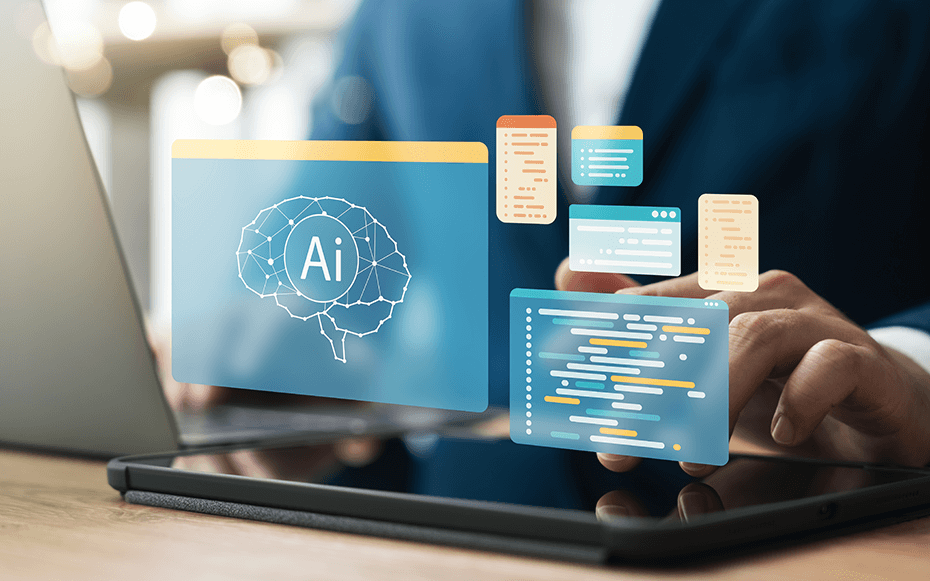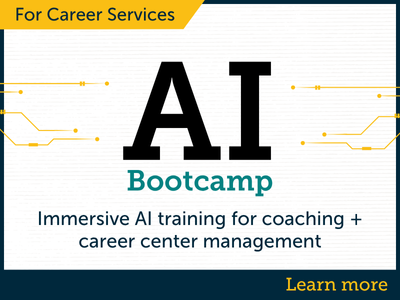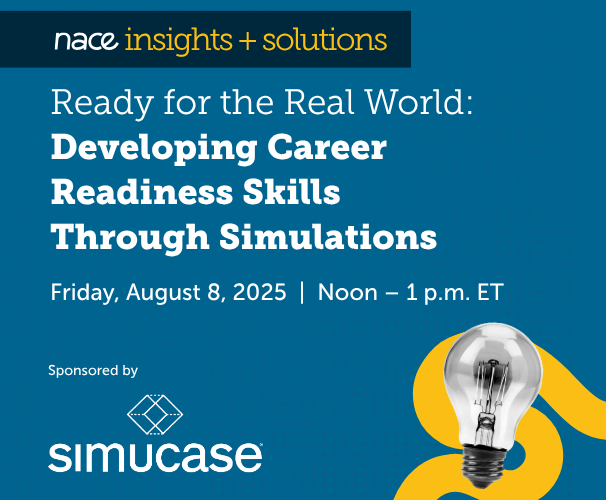Early in his career, Hassan Akmal realized career exploration wasn’t about choosing a job; it’s about designing a meaningful, evolving, and purpose-driven life. In response to this revelation, he created “Career and Life Design,” a theoretical framework that reimagines how individuals navigate the ever-evolving journey of their professional and personal lives.
“It shifts career exploration from a narrow, one-time decision to a lifelong process of continuous self-discovery, iteration, and holistic design,” explains Akmal, executive director of Career & Professional Development at University of California San Diego and an author of The AI Mosaic of Career & Life Design.
“The outdated notion of a linear career path—study, work, retire—has crumbled, making way for a more fluid, purpose-driven paradigm where careers are a dynamic mosaic of interconnected experiences. I call this the ‘Quantum Career’—a path that encourages you to embrace the complexity of your professional journey while maintaining a clear sense of purpose. This is how we thrive in an age of boundless possibilities.”
The Career and Life Design process itself is evolving. Today, AI makes this pursuit more tangible than ever, acting as an unprecedented sounding board for self-exploration, Akmal points out.
“It enables us to visualize and simulate multiple versions of our future selves, empowering us to make informed, life-altering decisions. By analyzing patterns and possibilities, AI helps us identify the environments, challenges, and opportunities that bring out the best in us,” he says.
“Thriving in this landscape requires more than just acquiring skills—it demands an adaptable, ever-evolving vision for both career and life. The true goal? Clarity. Clarity fuels confidence, which ignites the courage to take bold, intentional action. And through that action comes fulfillment, not as a destination, but as a continuous, purpose-driven journey.”
A Purpose-driven Journey of Self-discovery
Today’s students are not simply preparing for jobs. Instead, Akmal notes, they are curating integrated personal, career, and professional development journeys that reflect their evolving identities, aspirations, and values. Therefore, the primary challenge in front of them is not finding a job, but learning the ability to better understand themselves.
“The theoretical framework of Career and Life Design critically differs from life design, which is based on design-thinking principles and relies heavily on external prototyping—iterating career choices like a product designer would test a prototype,” he says.
“Career and Life Design, however, is a deeply introspective process that begins with self-awareness, personal transformation, and the alignment of purpose with work.”
Akmal suggests students can tap into the expertise of the career center and actively incorporate Career and Life Design into their exploration process by:
- Approaching career exploration as a design challenge beginning with self-empathizing—Rather than waiting until senior year to make career decisions, students can treat their career as an iterative design project—one that evolves through experimentation and feedback. This might begin with student employment and means:
- Prototyping different career paths—Engaging in internships, side projects, and job-shadowing experiences to test different fields without long-term commitment.
- Leveraging AI-powered simulations—Using AI career tools to explore future self-mapping, running predictive career scenarios and simulating job interviews.
- Building a career and life portfolio—Instead of relying solely on a resume, students should document their work and travel through projects, case studies, and digital portfolios to showcase adaptability and skill development.
- Creating a career bucket list—Students should curate a career bucket list—a collection of roles, industries, and experiences they want to pursue over a lifetime of careers. The future of work will demand multiple careers, possibly at the same time.
“To master their life, students must master their career by designing it with intention, curiosity, and a growth mindset,” Akmal says.
“Students should work with career coaches to identify the ‘nexus’ that connects all of the nonlinear careers to each other and to their lives. For example, perhaps it’s the love of giving back to your community, serving, or building a team. This will help students understand how to connect the tiles in the life mosaic they are creating.”
- Adopt a growth mindset and embrace iteration—Career exploration is a continuous learning process. To do this effectively, students should:
- View career setbacks as data, not failures—Every experience—whether a difficult internship or an unexpected career pivot—provides valuable insights.
- Engage in rapid experimentation—Testing new skills, industries, and work environments through externships (job shadowing) or micro-experiences like freelancing, volunteering, or research projects.
- Use AI as a mindset coach—AI can help analyze patterns of motivation, career interests, and strengths, guiding students toward aligned career paths.
- Integrate exploration with intentional skill development—While career exploration should be broad, it should also be strategic. Students must:
- Identify and build future-proof skills—Staying ahead by mastering skills in AI literacy, problem-solving, emotional intelligence, and adaptability—the skills that remain relevant across industries.
- Use AI-powered skill gap analysis—AI tools can pinpoint missing skills based on industry trends and recommend targeted learning pathways. This will help students build a skills-first playbook, helping them upskill and reskill when the job titles of tomorrow haven’t been created yet.
- Engage in purpose-driven work early—Students should align coursework and extracurriculars with real-world applications that contribute to personal and professional growth. Whether or not an institution has a co-curricular record or not is beside the point; students should! In some cases, those records may be much more extensive and impressive than one’s academic record.
- Develop a future-self mindset—Instead of fixating on a single “dream job,” students should design careers with future adaptability in mind by:
- Creating multiple career path scenarios—AI-driven tools can simulate potential career trajectories, allowing students to make informed, data-driven decisions.
- Networking intentionally—Students should build relationships with mentors, faculty, alumni, and industry professionals who can provide insights into hidden career opportunities.
- Adapting the career plan as needed—Students need to recognize that career goals will evolve, work cultures may change, organizations may grow, and that adaptability is a primary superpower.
- Implement a reflection and decision-making framework—To make informed, intentional career choices, students should adopt a structured approach that integrates self-reflection, data-driven insights, and emerging AI tools by:
- Journaling and doing self-assessments—Career and life journeys are shaped by reflection. When we begin with gratitude, we create space for growth and self-awareness. Writing their own story—rather than living someone else’s—allows for deeper personal agency. Documenting experiences in real time, analyzing insights from internships, coursework, and projects, and recognizing career patterns will help students craft a vision for success that is uniquely theirs.
- Conducting quarterly career and life reviews—Career growth requires regular recalibration. By assessing personal and professional goals every quarter, students can ensure alignment between their evolving aspirations, industry trends, and skill development. This holistic approach acknowledges that career success is deeply interconnected with overall life fulfillment. By integrating career and life reviews, students can track progress, recognize new opportunities, and make proactive adjustments.
- Leveraging AI for decision support—AI-powered career design platforms provide real-time labor market insights, simulate career trajectories, and offer personalized recommendations. The more precise the input, the better the output—students should refine their prompts, iteratively improving AI-driven insights. AI can act as a strategic partner in career exploration, offering clarity where uncertainty once reigned.
“By integrating these reflective and data-driven strategies, students will cultivate clarity, purpose, and adaptability—not just for their first job, but for lifelong career and life fulfillment,” Akmal says.
Leveraging AI in Career and Life Design Work With Students
Akmal believes that the future of career coaching is about unlocking human potential through supercharged intelligence.
“AI allows career professionals to deliver personalized, dynamic, and real-time support at scale while freeing up human advisers for deeper, more transformative conversations,” he says.
“AI enhances career services by acting as a digital mentor, career analyst, and simulation engine all in one.”
For example, career professionals could develop and take advantage of the following AI capabilities:
- AI-powered self-discovery—AI recognizes behavior patterns, maps skills to future industries, and suggests new possibilities that students may have never considered.
- Future-self simulation and predictive pathways—AI allows students to simulate different career paths in real time, reducing anxiety and providing clarity.
- The confidence factor—AI as a mindset coach helps students develop emotional agility, motivating them to reframe self-doubt into career confidence.
- AI-powered dashboard—This is a personalized, data-driven platform to track and forecast positive career outcomes in real-time while enhancing career exploration, skill development, and employer connections for students and alumni.
- AI mastermind group—Career centers can create and facilitate AI-driven mastermind groups where students collaborate with AI mentors and industry leaders to explore career strategies, test ideas, and gain insights from predictive career intelligence, fostering a future-ready mindset.
Akmal suggests career centers integrate AI intentionally in all stages, but tailoring their integration based on their level of AI-readiness. At each level, Akmal suggests career centers integrate AI in the following ways:
- For beginners—Start with Generative Pre-trained Transformers (GPTs), such as ChatGPT, Claude, and Gemini. These large language models (LLMs) generate human-like text based on prompts, assisting students with career exploration, resume critiques, and interview preparation. As familiarity grows, career centers can expand into AI-powered career assessments, chatbots, and digital advising tools that provide instant responses to common career questions.
- For intermediate centers—Customize AI-powered GPTs for specific career advising needs. Institutions can fine-tune language models to develop FAQ-driven AI assistants tailored to areas such as pre-graduate advising, industry-specific career pathways, internship matching, and alumni mentorship programs. Custom GPTs allow career centers to provide personalized, automated guidance while maintaining institutional expertise. For example, a pre-graduate advising GPT can answer questions about graduate school applications, standardized tests, and fellowship opportunities—freeing up advisers for deeper strategic conversations.
- For advanced centers—Leverage AI-driven career simulations, predictive career coaching, APIs, and autonomous AI agents to revolutionize career services. Integrate AI-powered career advising systems into existing platforms, such as career management systems, university portals, and learning management systems. APIs allow real-time job market insights, salary predictions, and AI-driven resume analysis to be embedded within student career dashboards. Move beyond static chatbots by deploying AI career agents that can learn from student interactions, proactively suggest career strategies, and provide adaptive recommendations. These agents can track student career goals and progress over time; automate networking opportunities and informational interview outreach; predict career trajectory shifts based on labor market trends; guide students through multi-step decision-making processes, such as job offer negotiations or industry transitions; and more. Use immersive AI career simulations to help students experience different industries, roles, and workplace environments before committing to a career path. This enhances experiential learning and career clarity.
No matter their level of integration, all institutions should establish ethical guidelines to ensure AI tools are fair, inclusive, and aligned with human-centered career coaching.
“Remember,” Akmal says, “regardless of where an institution stands, the focus should be on using AI ethically, ensuring it enhances the human element of career advising rather than diminishing it.”
By integrating AI at the right pace, and doing so ethically, career centers can empower students to navigate an evolving job market and ambiguity with greater clarity, adaptability, and confidence throughout their Career and Life Design journey.
“Imagine if you could stand at a crossroads and see, with striking clarity, the roads ahead—each one illuminated with possibilities, each decision mapped with predictive intelligence. What if AI could simulate the career paths you haven’t yet dared to explore, guiding you toward a life designed with precision, agility, and purpose?,” Akmal asks.
“AI isn’t replacing career coaches—it’s amplifying their ability to help students see beyond the limits of today’s job market, envision the future, and upskill, reskill, and power skill to get there.”







